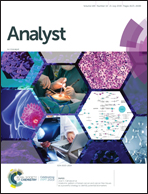Insulin: a review of analytical methods
Abstract
Insulin is an important polypeptide hormone that regulates carbohydrate metabolism. Abnormal levels of insulin are associated with diabetes mellitus that is characterized by chronic hyperglycemia. Therefore, reliable quantification of insulin is important for clinical purposes such as the diagnosis and treatment of diabetes. Nowadays, immunoassays and chromatographic assays are the primary methods that have been developed for insulin analysis. In this review, we have summarized the principles, sensitivity, linearity range, and recovery as well as the advantages and limitations of the most prevalent methods. Generally, immunoassays including enzyme-linked immunosorbent assay (ELISA), chemiluminescence immunoassay (CLIA), radioimmunoassay (RIA) and on-chip immunoassay show good selectivity towards insulin with less interferences and high throughput. Chromatographic assays including high performance liquid chromatography coupled with ultraviolet detection (HPLC-UV), micellar electrokinetic capillary chromatography (MECC), and liquid chromatography with tandem mass spectrometry (LC-MS/MS) are highly sensitive and capable of simultaneous detection of insulin and its analogues.

- This article is part of the themed collection: Recent Review Articles


 Please wait while we load your content...
Please wait while we load your content...